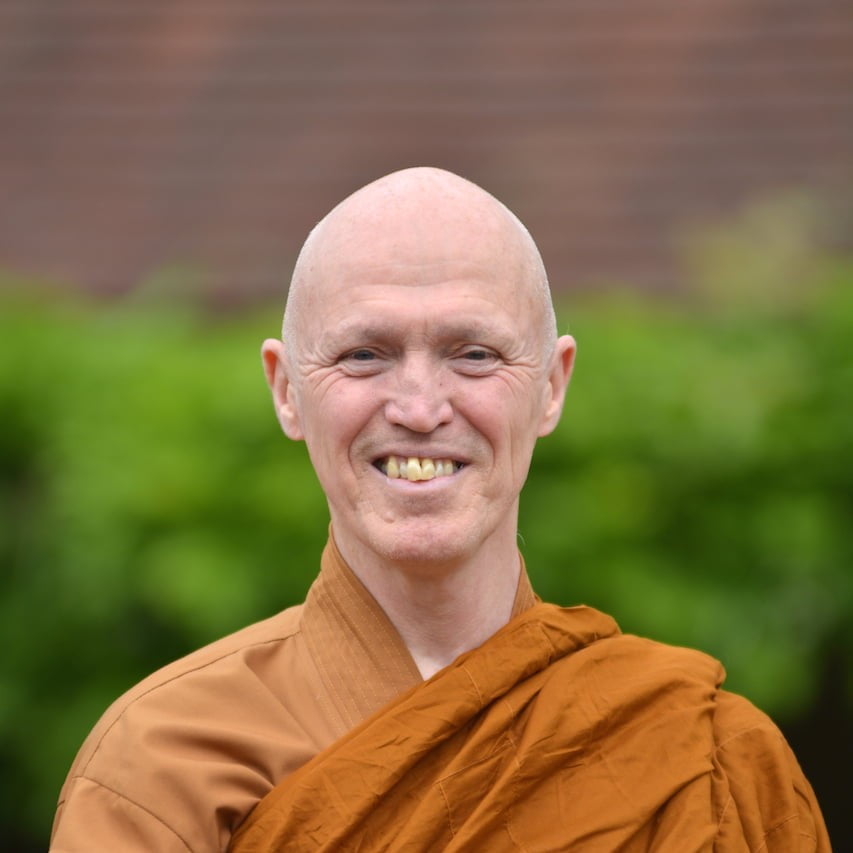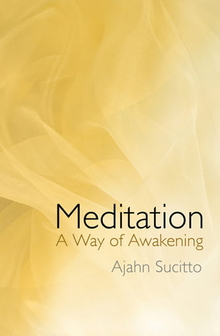If you’re reading this guide, maybe you’re curious as to why people meditate. Why do they sit still and upright in silence for long periods of time?What are they thinking about? Is it some kind of religion; if so, what do they believe in? Well, it may be that some meditators are deliberately thinking along certain lines; and some may have profound faith in a God or a Truth. But then again, it is possible to meditate without these. To put it simply, what it all boils down to is finding peace of mind – within the mind itself. That the mind is the proper place for that search becomes evident when one acknowledges that, despite many technological, medical and social developments, humanity is profoundly stressed and troubled.

Ajahn Sucitto
Luang Por Sucitto was the abbot of Cittaviveka – Chithurst Buddhist Monastery from 1992 until 2014. He was born in London and went forth as a bhikkhu in Thailand in March 1976....
Lees meer
Ook deur Ajahn Sucitto

Atmen wie ein Buddha
2024 — Deutsch

Les saṅkhārā
2023 — Français

Clarté et Espace
2023 — Français

Clarté et Calme Pour les Gens...
2022 — Français

On Your Own Two Feet
2022 — English

Buddha-Natur, Menschen-Natur
2022 — Deutsch

Chiarezza e Calma
2022 — italiano

แจ่มกระจ่าง …อย่างสงบ
2022 — ไทย

Breathing like a Buddha
2022 — English

Kamma and the End of Kamma...
2022 — English

Den inneren Tyrann entthronen
2021 — Deutsch

Klarheit und innere Ruhe für geschäftige...
2021 — Deutsch

Meditation an Outline – Sinhala version
2021 — සිංහල

Samādhi ist purer Genuss
2021 — Deutsch

Das kostbarste Geschenk
2021 — Deutsch

เส้นทางภาวนา
2021 — ไทย

An Outline of Buddhism
2020 — English

Buddha-Nature, Human Nature
2020 — English

Claridad y Calma
2020 — Español

The Broken Gong
2019 — English

The Most Precious Gift
2019 — English

Le perfezioni - Modi di attraversare...
2018 — italiano

Meditation – Mode d’emploi
2018 — Français

Introducción a la Meditación del Conocimiento...
2016 — Español

Meditation – Ein Weg des Erwachens
2016 — Deutsch

Introduction to Insight Meditation
2015 — English

Meditasie: ‘n Gids
2015 — Afrikaans

Meditation – An Outline
2015 — English

Clarity and Calm
2014 — English

Primi Passi In Buddhismo E Meditazione
2014 — italiano

Unseating the Inner Tyrant
2014 — English

Samādhi is Pure Enjoyment
2014 — English

Parami, Ways to Cross Life's Floods
2012 — English

Rude Awakenings
2011 — English

Great Patient One
2011 — English

Discipline and Conventions
2011 — English

Buddhista Meditáció
2007 — Magyar

Incarnez l’esprit !
2007 — Français

Kalyana – Dhamma talks from Ajahn...
2002 — English


